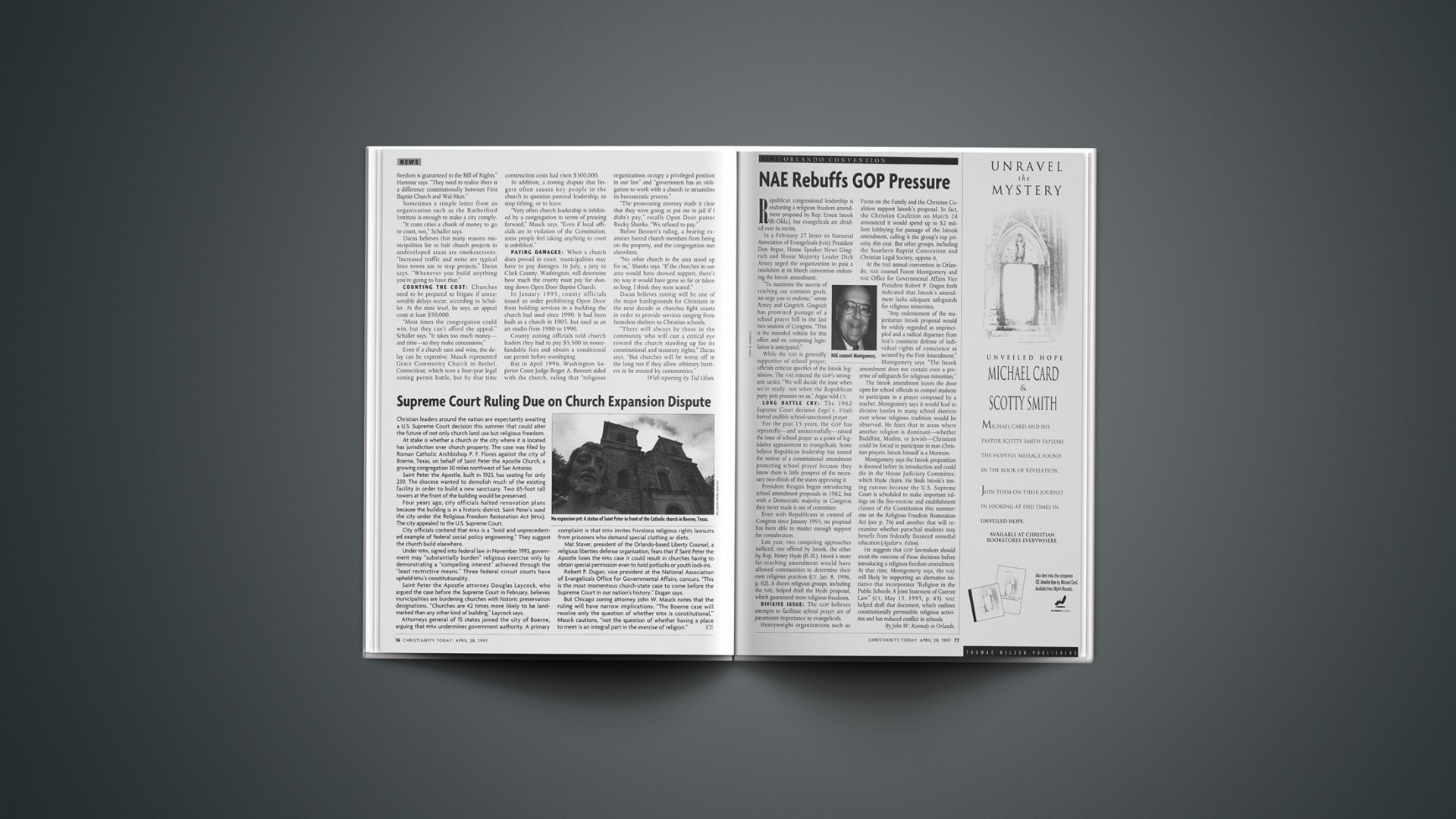Christian leaders around the nation are expectantly awaiting a U.S. Supreme Court decision this summer that could alter the future of not only church land use but religious freedom.
At stake is whether a church or the city where it is located has jurisdiction over church property. The case was filed by Roman Catholic Archbishop P. F. Flores against the city of Boerne, Texas, on behalf of Saint Peter the Apostle Church, a growing congregation 30 miles northwest of San Antonio.
Saint Peter the Apostle, built in 1923, has seating for only 230. The diocese wanted to demolish much of the existing facility in order to build a new sanctuary. Two 65-foot tall towers at the front of the building would be preserved.
Four years ago, city officials halted renovation plans because the building is in a historic district. Saint Peter’s sued the city under the Religious Freedom Restoration Act (RFRA). The city appealed to the U.S. Supreme Court.
City officials contend that RFRA is a “bold and unprecedented example of federal social policy engineering.” They suggest the church build elsewhere.
Under RFRA, signed into federal law in November 1993, government may “substantially burden” religious exercise only by demonstrating a “compelling interest” achieved through the “least restrictive means.” Three federal circuit courts have upheld RFRA’s constitutionality.
Saint Peter the Apostle attorney Douglas Laycock, who argued the case before the Supreme Court in February, believes municipalities are burdening churches with historic preservation designations. “Churches are 42 times more likely to be landmarked than any other kind of building,” Laycock says.
Attorneys general of 15 states joined the city of Boerne, arguing that RFRA undermines government authority. A primary complaint is that RFRA invites frivolous religious rights lawsuits from prisoners who demand special clothing or diets.
Mat Staver, president of the Orlando-based Liberty Counsel, a religious liberties defense organization, fears that if Saint Peter the Apostle loses the RFRA case it could result in churches having to obtain special permission even to hold potlucks or youth lock-ins.
Robert P. Dugan, vice president at the National Association of Evangelicals Office for Governmental Affairs, concurs. “This is the most momentous church-state case to come before the Supreme Court in our nation’s history,” Dugan says.
But Chicago zoning attorney John W. Mauck notes that the ruling will have narrow implications. “The Boerne case will resolve only the question of whether RFRA is constitutional,” Mauck cautions, “not the question of whether having a place to meet is an integral part in the exercise of religion.”
Copyright © 1997 Christianity Today. Click for reprint information.










